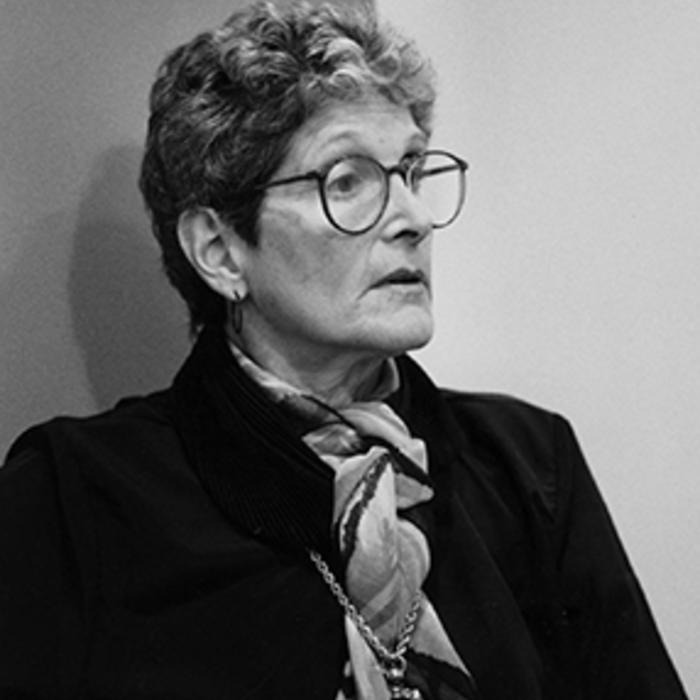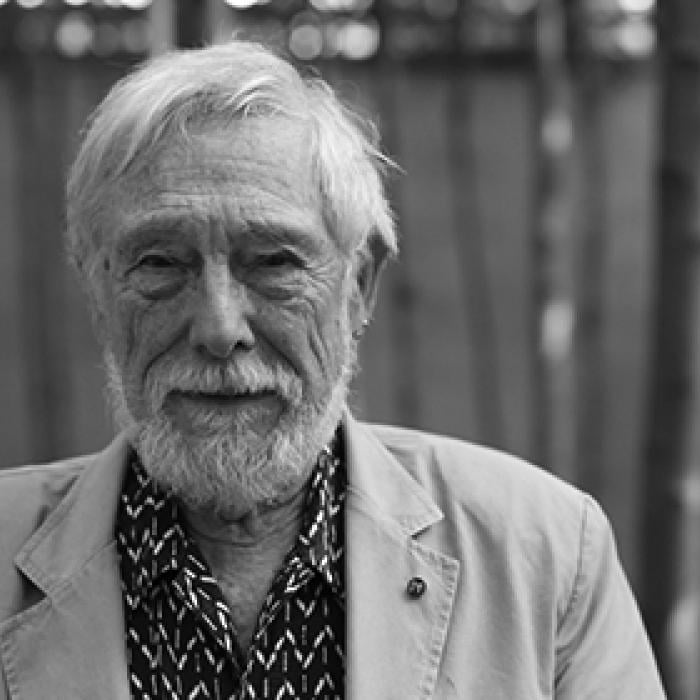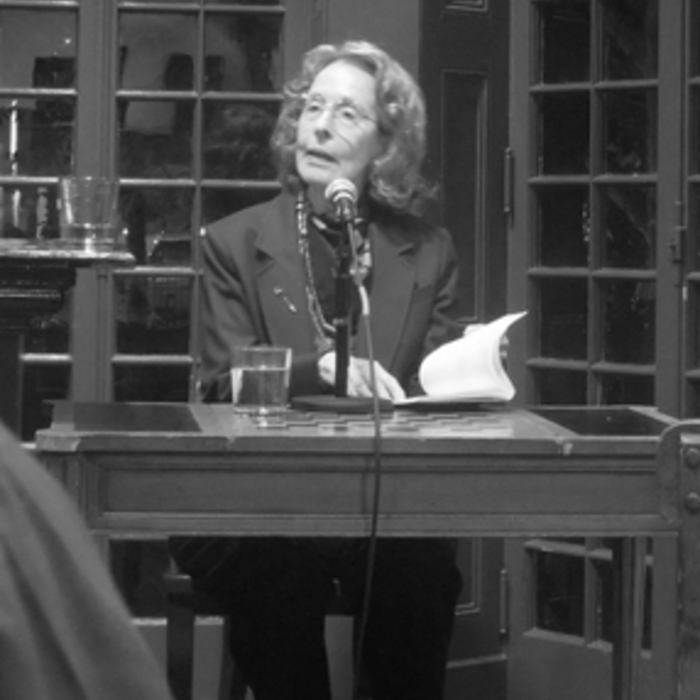Jerome Rothenberg
Born on December 11, 1931, to Morris and Estelle Rothenberg, Jerome Rothenberg was raised in New York City and graduated from the City College of New York in 1952 with a BA in English. He went on to the University of Michigan to receive his MA in literature in 1953. From 1953 until 1955, he served in the U.S. Army in Mainz, Germany, and afterwards returned to New York and continued his graduate studies at Columbia University until 1959.
Rothenberg began his literary career in the late 1950s, working primarily as a translator. He is responsible for the first English appearances of Paul Celan and Günter Grass. He founded Hawk’s Well Press in 1959 and, with it, the magazine Poems From the Floating World. Hawk’s Well Press published Rothenberg’s first book, White Sun, Black Sun, in 1960. He remained in New York City, teaching, writing, and publishing until 1972, when he moved to the Allegany Seneca Reservation. In 1974, he moved to California to teach at the University of California, San Diego.
Rothenberg has published more than seventy books and pamphlets of poetry. His books have been translated into multiple languages; two of them have been turned into stage plays and performed in several states. He has also assembled, edited, and annotated over ten anthologies of experimental and traditional poetry and performance art and has been the editor or coeditor of several magazines. He has translated an enormous amount of world literature, including works by Pablo Picasso and the Czech poet Vítezslav Nezval. Rothenberg has also been deeply involved in performance art and has written several plays. Throughout his literary career, he has explored or been influenced by global cultural movements, including the Dadaists, North American Indigenous cultures, Japanese literature, his familial connections with the Jewish communities of Eastern Europe, as well as a vast range of tribal poetics, both verbal and non-verbal.
At the beginning of his career, Rothenberg and fellow poet, Robert Kelly, began the Deep Image movement, coining the term and citing the Spanish cante jondo, or “deep song,” and Federico García Lorca as their inspirations. Rothenberg is probably best known for his work in ethnopoetics, a term that he coined, involving the synthesis of poetry, linguistics, anthropology, and ethnology. Through it, he sought both to perpetuate fading oral and written literary legacies and to render them relevant and necessary to modern literature. His 1968 anthology, Technicians of the Sacred (University of California Press), a collection of African, American, Asian, and Oceanic poetics, went beyond mere folk songs and included the texts and scenarios for ritual events and both visual and sound poetry. This anthology has informed a generation of artists about the immense potentiality and value of poetry throughout the world. He also founded and coedited the first magazine of ethnopoetics, Alcheringa, and has been referred to as the father of American ethnopoetics.
Rothenberg’s numerous awards and honors include grants from the Guggenheim Foundation and the National Endowment for the Arts, two PEN Oakland/Josephine Miles Literary Awards, two PEN Center USA West Translation Awards, and the San Diego Public Library’s Local Author Lifetime Achievement Award. In 1997, he received a doctorate of letters from the State University of New York and was elected to the World Academy of Poetry in 2001.
Rothenberg has taught at the City College of New York, the State University of New York, Binghamton, and spent the majority of his teaching career at the University of California, San Diego, where he was an emeritus professor of visual arts and literature. He died on April 21, 2024, at his home in Encinitas, California.



